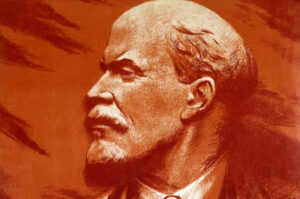Across the pond, dire warnings are often intoned about something called Christian Nationalism. This is (we are told) a rising, virulent strain of theocratic fascism that fuses Christian dogma with sexism, ethnocentrism, and state power. Others, again, warn that this is now in danger of spreading to sensibly secular Britain.
Except that Britain is already the historic home of Christian nationalism. We have, after all, had a nationally established Christian church since 1534. Since then, this body has (as the name “Church of England” suggests) sought to hold in homeostasis England’s spiritual and political bodies, as both Christian, and a nation.
Can it last, though? Last week’s Commons vote in favour of a bill permitting state-licensed suicide points toward England now being more post-Christian than not. And if the UK is now post-Christian, so too our current ruling uniparty seems increasingly post-national; the enthusiasm shown by the current lot for handing away national possessions such as the Chagos Islands and — just this week — the Elgin Marbles are only the two most recent cases in point.
We got from the historic version of Christian nationalism to our contemporary post-Christian, post-national state ideology via a secular pseudo-church. This emerged within the Anglican Church, spread via its social structures, and then replaced Anglicanism as England’s established faith: the welfare state, and centrally, the NHS. Its unwitting midwives were the welfare state’s 19th-century precursor: England’s church ladies.
This bourgeois group, metonymically referred to at the time as “Mrs Grundy”, represented the public moral conscience of the country. Tireless institution-builders, the Mrs Grundies of the 19th century were often largely content to leave industry, formal politics, and military and imperial matters to men, believing women’s “sphere” instead encompassed family, education, and moral leadership: a figurative as well as literal maternalism that paired satisfyingly with guardianship of the nation’s moral character.
To this end, Mrs Grundy founded charities, schools, and poor relief initiatives. She published improving literature. She campaigned for women’s education. Supported by bodies such as the Girls’ Friendly Society, the Mothers’ Union, and the National Union of Women Workers, a vast network of social reform initiatives flourished across the country.
In most cases, these were profoundly shaped by Mrs Grundy’s Christian faith: the Girls’ Friendly Society (GFS), for example, was founded in 1875 with the support of the Anglican Church, and aimed to support young working-class women who left their homes in the country to take up work in England’s rapidly growing and industrialising cities. The explicit aim was to provide “for every working girl of unblemished character a friend in a class above her own”. Similarly, the Mothers’ Union, founded 1876 (again with the blessing of the Anglican Church) shared with the GFS an aspiration to moral reform of the nation, and to strengthening the Empire through womanly influence. It aimed, according to its own mission statement, “To uphold the sanctity of marriage and to awaken in mothers of all classes a sense of their great responsibility as mothers in the training of their boys and girls (the future fathers and mothers of the Empire)”. Thousands of Mothers’ Union groups, publicised by their popular periodicals, formed the backbone of the now-mocked “Jam and Jerusalem” version of Anglican piety.
Patriotic, pious, maternalist, and energetically pro-Empire, Mrs Grundy represented Victorian Britain’s moral mainstream: the real, historic Christian nationalists. Largely framed by the Church of England, Mrs Grundy worked to improve her nation’s moral fibre from the family level upwards, all for the greater glory of God and the British Empire. Over the same period, though, other intellectual currents sought to channel the same broadly Christian impulse toward social reform in less overtly religious directions.
Positivism, for example, developed by the French thinker Auguste Comte, recognised only what could be scientifically verified. Positivists opposed empire, and decried Christianity as a superstitious remnant of an earlier age, while (long before Fukuyama) celebrating the industrial era as the endpoint of human development. Positivism heavily influenced women such as the Women’s Guild organiser Ethel Harrison, who embraced Comte’s vision of women’s distinct social role as moral improver amid a new “religion of Social Service” that would replace the old explicitly theological type.
In this sense, Harrison typified the Positivist efforts to square their philosophy with a still heavily Christian-flavoured moral framework, that emphasised principles such as public service, concern for the weak, and universal equality. And they were hardly the only Victorians keen to salvage Christian moral intuitions while ditching the Christian story. The Fellowship of the New Life, a forebear of Britain’s Ethical and Humanist movements, promoted pacifism, unselfish communitarianism and material simplicity with unmistakably Christian overtones — just without the Christian eschatology. Its most noted spin-off was the Fabian Society, which would go on to shape the intellectual outlook of the Labour Party all the way to its present-day avatar, Keir Starmer.
Such unconventional thinkers often socialised and collaborated with more conventional church ladies. For example, despite Positivism’s opposition to Christianity and imperialism, Ethel Harrison was close friends with several much more conventionally Christian and patriotic social reformers. But if these ladies collaborated in public life, their underlying worldviews were in conflict. And from today’s vantage-point, it’s evident that the secularisers won.
But Mrs Grundy wasn’t so much abolished, as nationalised. By the early 20th century many of the institutions founded by church ladies had grown so indispensable to the social fabric they were eventually absorbed into national welfare infrastructure: schools and hospitals were absorbed into state education, for example, while the patrician home-visiting once performed by Mothers’ Union ladies became social work under the eye of local authorities. In the process, the “Jam and Jerusalem” piety and overt Christian ethos that inspired them were progressively sanded away. In its place, the worldview represented in Mrs Grundy’s heyday by groups such as the Positivists and Fellowship of the New Life came into its own: a version of the Christian public service ethos featureless, ductile and “neutral” enough to be delivered by impersonal bureaucracy, rather than officious matrons.
In this way, imperceptibly, the version of the established Church of England that dominated the high Victorian era gave way to a new established Church: one in which God and Caesar converge in a bureaucratic, state-managed nationwide project of moral reform and poor relief, with “tithes” or “fundraising” now formalised as general taxation. Perhaps its most obviously religious manifestation today is the devotion inspired by the NHS, as when, during Covid, we closed churches, schools, pubs, and much else besides in the name of our all-important collective duty to “save the NHS”.
The clarity of national moral focus, in a crisis, was underlined by the one in-person collective action we were still allowed: the “Clap for Carers” coordinated five-minute exeat from our homes to join in ritual applause, for the NHS workers’ holy preservation of our bodily safety and wellbeing. The only reason this partially escapes being seen as a religious practice is that its values are the post-Christian, secular ones that spun out of the collision between Victorian Christianity and scientific materialism.
Meanwhile, too, if this new established church preserved a thinned-out, neutralised version of Christianity, so it also preserved a dilute “civic” form of the nationalism — as an enabling mechanism for the welfare state. For, very reductively, National Insurance presupposes a nation. More subtly, too, willingness to pay the taxes that fund requires high levels of social solidarity in turn presupposes an “imagined community”. And in the popular understanding, this tends to comprise some mix of genetic, historic, cultural and/or geographic commonalities — a phenomenon that, again, maps closely to the modernist political entity “nation”.
That, in broad outline, is the version of “Christian nationalism” that’s held in England for roughly the last century. Meanwhile, in the aftermath of its establishment, the older overtly Christian Church of England has grown ever more etiolated, as practical ministry increasingly devolved to the state and the spiritual kind came to feel optional or simply irrelevant.
Does this matter? It should, perhaps, to those who remain Christian in terms that would have made sense to Mrs Grundy. For it’s one thing for an established church to shrug as formerly church-based charity work is nationalised in name of secular “compassion”. It’s another altogether to go on shrugging, as actively anti-Christian activities such as state-licenced suicide — a cause supported by Fellowship of the New Life member and Fabians including Havelock Ellis and Starmer — are added under the same rationale. It is, of course, more than possible to adhere to Christian beliefs while living in a state that professes a different or even hostile creed; this remains true, today, for many Christians worldwide. But last week’s vote in Parliament ought perhaps to invite devout Anglicans to consider whether the nominal position of their own faith as England’s national church has left them unduly complacent about the actual established Church, and the actual standing of Christianity in England.
Meanwhile, too, even those unsentimental about the older Church might eye the evolution of its successor, and wonder about the prognosis for the “imagined community” of England in which it remains nominally established. This is not just due to the post-national sensibility of Keir Starmer and those of his ilk, but also a paradox at the heart of England’s religion of state welfare.
For this relies for sustainability on an ever-growing population and economy. And as Britain’s birth rate has declined and its economy stagnated, politicians have turned with increasing desperation to migration, to fund and staff the welfare our state religion demands. Then, as they do so, the resulting demographic change has progressively undermined the cohesion of the “imagined community” that legitimised it to begin with.
A century and a half on from Mrs Grundy’s heyday, then, it’s clear that Mrs Grundy won, in the sense that her Christian nationalism entrenched itself in the architecture of the British state. But she lost, too, as it subsequently evolved into something actively solvent both to Christian doctrine, and to national identity as such.
As this progresses, both Church and nation (in the sense Mrs Grundy would have understood them) are now sliding ever closer to extinction, under a regime that sees in both only a threat to its utopian universalism. And whatever you think of the welfare state, I would not bet on its survival much beyond the Christian nationalism that birthed it. Mrs Grundy would be appalled by the fruits of her own triumph.
Disclaimer
Some of the posts we share are controversial and we do not necessarily agree with them in the whole extend. Sometimes we agree with the content or part of it but we do not agree with the narration or language. Nevertheless we find them somehow interesting, valuable and/or informative or we share them, because we strongly believe in freedom of speech, free press and journalism. We strongly encourage you to have a critical approach to all the content, do your own research and analysis to build your own opinion.
We would be glad to have your feedback.
Source: UnHerd Read the original article here: https://unherd.com/



